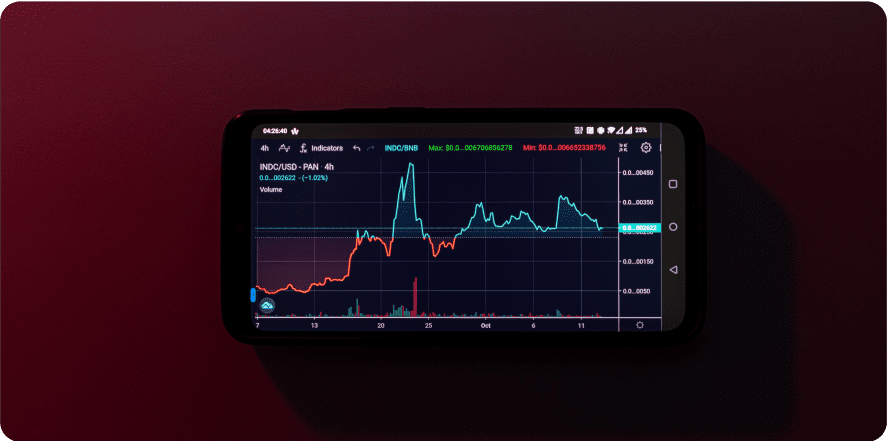From the mine #3
Jump to:
Welcome back, ladies and gentlemen. We hope the month of June was good to all of you. We have got a great set of stories, news and analysis for you to read today. So let’s dive in without further ado.
Is it all a fad?

That’s the big question on everyone’s mind nowadays. Is crypto really here to become the next big thing?
And the short answer to that question is a simple yes. Crypto is here to stay. It will become the next big thing.
To validate that statement, we would like to highlight Chris Dixon’s recent blog post on the same topic.
And here’s why you should believe in Chris Dixon’s words:
He founded and leads a16z, a venture capital fund which invests in web3 technologies with the $3 billion it manages
Also, he was one of the early believers and investors in web2
In his recent blog, Dixon chalks out the brief history of the Internet and explains how crypto walks a similar path.
Back in the day, an “average internet user used to spend 30 minutes a day online, compared to about 7 hours today.” Internet was terribly slow and its main attraction was just email. “The mainstream consensus was that the internet was a cool invention, but has limited use cases…”
And clearly, the mainstream consensus was wrong. Internet became huge. It changed everything about our lives. So much so, that it’s almost impossible for us to spend even a day without it.
Today, we see crypto having just gotten past the ‘it’s just a cool invention’ phase. People are beginning to acknowledge its infinite use cases and the fact that governments have gotten involved means that it’s here to stay.
Web2 was exciting. Web3 is going to be revolutionary and it has only just found its footing.
Stablecoins = Digital money

Japan passed a new law early in June, recognizing stablecoins as digital money in the country. As per the new legislation, stablecoins can only be issued by licensed banks, registered money transfer agents, and trust companies.
US accounts for 98%
Ever since 2009, US officials have collected over $3.3 billion in penalties from crypto-related businesses. Their collection accounts for 98% of all the crypto-related penalties collected globally. So far, this year’s single-largest, successful monetary lawsuit was filed against BlockFi, for not registering its lending project.
BTC poses minimal fiscal risk
When El Salvador’s finance minister was asked how the Bitcoin crash affects the economy, considering Bitcoin is one of its legal tenders, he said it posses “extremely minimal” fiscal risk. He supports his argument by saying that till they don’t sell any of their crypto reserves, they aren’t booking any losses.
A lifeline in disguise

While most of our attention is unfairly focused on its volatility, we can’t afford to ignore how crypto has been saving lives. Literally.
Here’s a set of quotes from civilians in different war-torn countries, describing what crypto has done for them and explaining its need better than our words can:
“We wouldn’t have been able to buy the first 100 bullet-proof vests to help civilians defending their houses without Bitcoin.”
- Lyudmyla Kozlovska (a Ukrainian activist)
Context: When Russia invaded Ukraine earlier this year, the banking system came to a crashing halt in the initial days, disconnecting Ukrainians from the rest of the world.
"It's really difficult to get payments in Gaza. We have restrictions ... from most of the world…”
- Ibrahim Elhout (a software developer in Gaza)
Context: Palestinians in Gaza don’t have access to international payment apps. To send and receive money from overseas, they used to pay very high fees to banks and middlemen, until they started using cryptocurrencies.
“More and more Afghans are using stablecoins as a way to send and receive money…”
- Sanzar Kakar (founder of HesabPay)
Context: Most Afghans don’t have a bank account, and the national currency has been steadily falling over the last year. There have been almost no international remittances through banks in Afghanistan, since August 2021. This made adoption of cryptocurrencies not an option, but a necessity.
We are yet to discover the full potential of cryptocurrencies. But we can be sure of one thing today, that it has served as a lifeline across the globe, time and again.
(Quotes sourced from Reuters )
What’s up at Flint?

In the month of June, we sat down with some of you and understood how we can make your Flint experience even better. Based on what you shared and suggested, we have built some very exciting and useful features to add to the app.
Your Flint experience will not be limited to stablecoins anymore.
Very soon, you will be able to earn high returns on 10 more tokens, keep track of the market’s movements, and dive deep into all important news. All on the Flint app.
Along with these new features, we are also launching our very own blog. Make sure to explore it and find your favorite section.
Our two cents

Back when Corona was only a beer’s name, cryptocurrencies showed negligible correlation with stock indices. The correlation coefficient of Bitcoin and S&P 500’s daily moves was just 0.01, up until 2019. In simple English: the values of the two weren’t affected by each other.
But that has changed, for now at least.
A recent study conducted by Arcane Research found the correlation coefficient to have reached 0.59. Which means that changes in the value of S&P 500 are mimicked by Bitcoin by half the magnitude.
Here’s why:
The way an investor behaves doesn’t change across markets. When individuals believe an inflationary wave is headed their way, they liquidate their investments to buy low-return but relatively stable securities, such as government bonds.
The fact that we are seeing such behavior in crypto markets now is a sign of how it’s being adopted by the masses. This leads us back to where we’d started this newsletter; that ‘crypto is here to stay’. And there are signs all around us to support that claim.
Like this article? Spread the word
Subscribe to our
newsletter!
Receive timely updates on new posts & articles about crypto world.